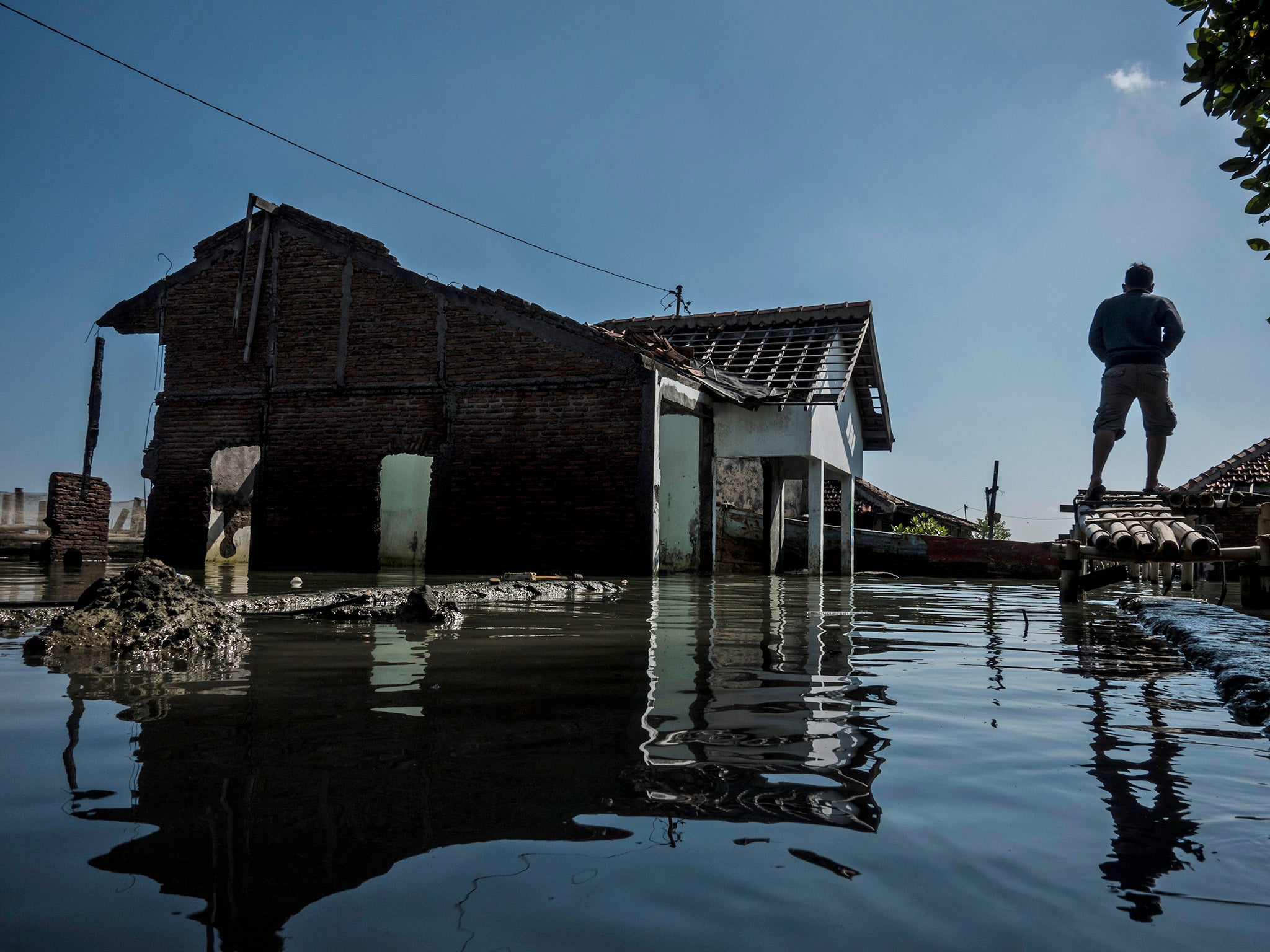Sea levels reached highest point on record last year, UN reports
Growing numbers of people are going hungry as climate change accelerates, report finds

The world is seeing record sea level rises and devastating floods, storms, heatwaves and wildfires as climate change impacts grow, a United Nations (UN) report has said.
The organisation's secretary general Antonio Guterres said "there is no longer any time for delay" on tackling climate change as the World Meteorological Organisation's (WMO) state of the climate 2018 report was published.
The physical signs of climate change and the impacts on people are accelerating as record greenhouse gas concentrations drive global temperatures to increasingly dangerous levels, the report said.
It details continuing increases in carbon dioxide levels in the atmosphere to new highs, sea levels rising at a faster rate as ice sheets melt, record hot oceans and the world's glaciers in retreat.
Last year most of the natural hazards that affected nearly 62 million people were linked to extreme weather and climate events, said the annual report, which is in its 25th year.
10 photographs to show to anyone who doesn't believe in climate change
Show all 10Impacts have already been seen this year, with Tropical Cyclone Idai wreaking devastation in south-east Africa, record warm winter temperatures in Europe, unusual cold in North America and searing heatwaves in Australia.
WMO secretary general Petteri Taalas said Idai "may turn out to be one of the deadliest weather-related disasters to hit the southern hemisphere".
In 2018, about 35 million people worldwide were hit by flooding and there were 14 "billion-dollar disasters" in the US, including Hurricane Florence and Michael which caused 49 billion dollars (£37bn) of damage and more than 100 deaths.
Super Typhoon Mangkhut affected 2.4 million people and killed at least 134, mainly in the Philippines.
More than 1,600 deaths were associated with intense heatwaves and wildfires in Europe, Japan and the US, while Kerala in India suffered the heaviest rainfall and worst flooding in nearly a century.
Droughts, floods and storms had displaced more than two million people worldwide by September.
Growing numbers of people are going hungry as climate extremes such as drought threaten to reverse gains in ending malnutrition.
The indicators of climate change continue to grow, according to the report, which showed upper ocean heat broke new records in data going back to 1955, as the seas absorb more energy trapped by greenhouse gases.
Sea level rises are accelerating, with the global average 3.7mm higher in 2018 than in 2017, with melting ice from the ice sheets the main cause of the increase.
The oceans are becoming increasingly acidic as they absorb more carbon dioxide, while Arctic ice cover was well below average throughout 2018, the report said.
Press Association
Subscribe to Independent Premium to bookmark this article
Want to bookmark your favourite articles and stories to read or reference later? Start your Independent Premium subscription today.

Join our commenting forum
Join thought-provoking conversations, follow other Independent readers and see their replies